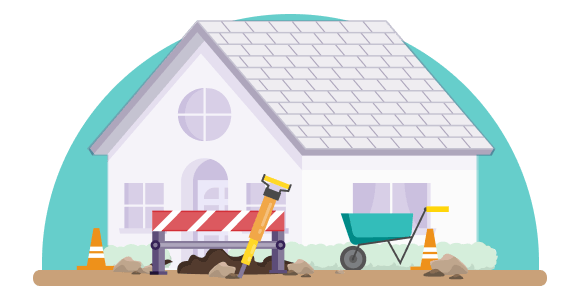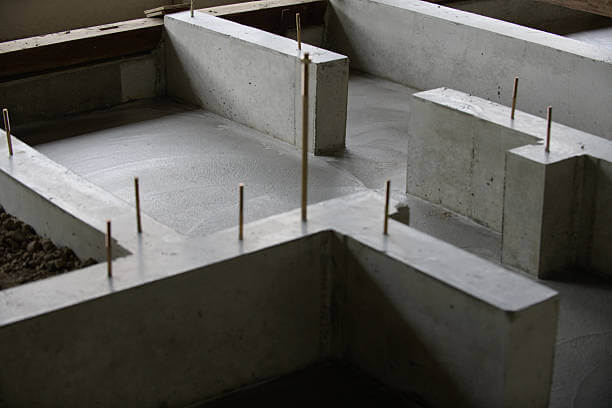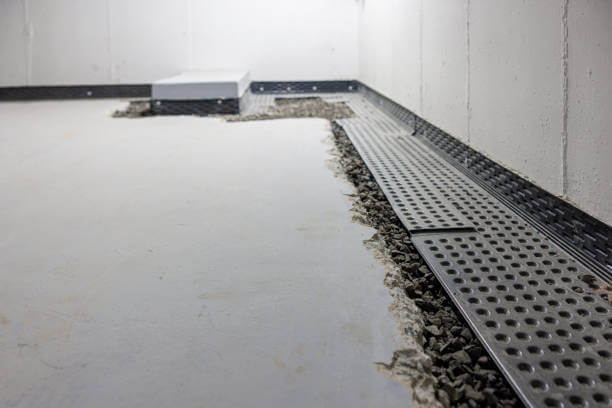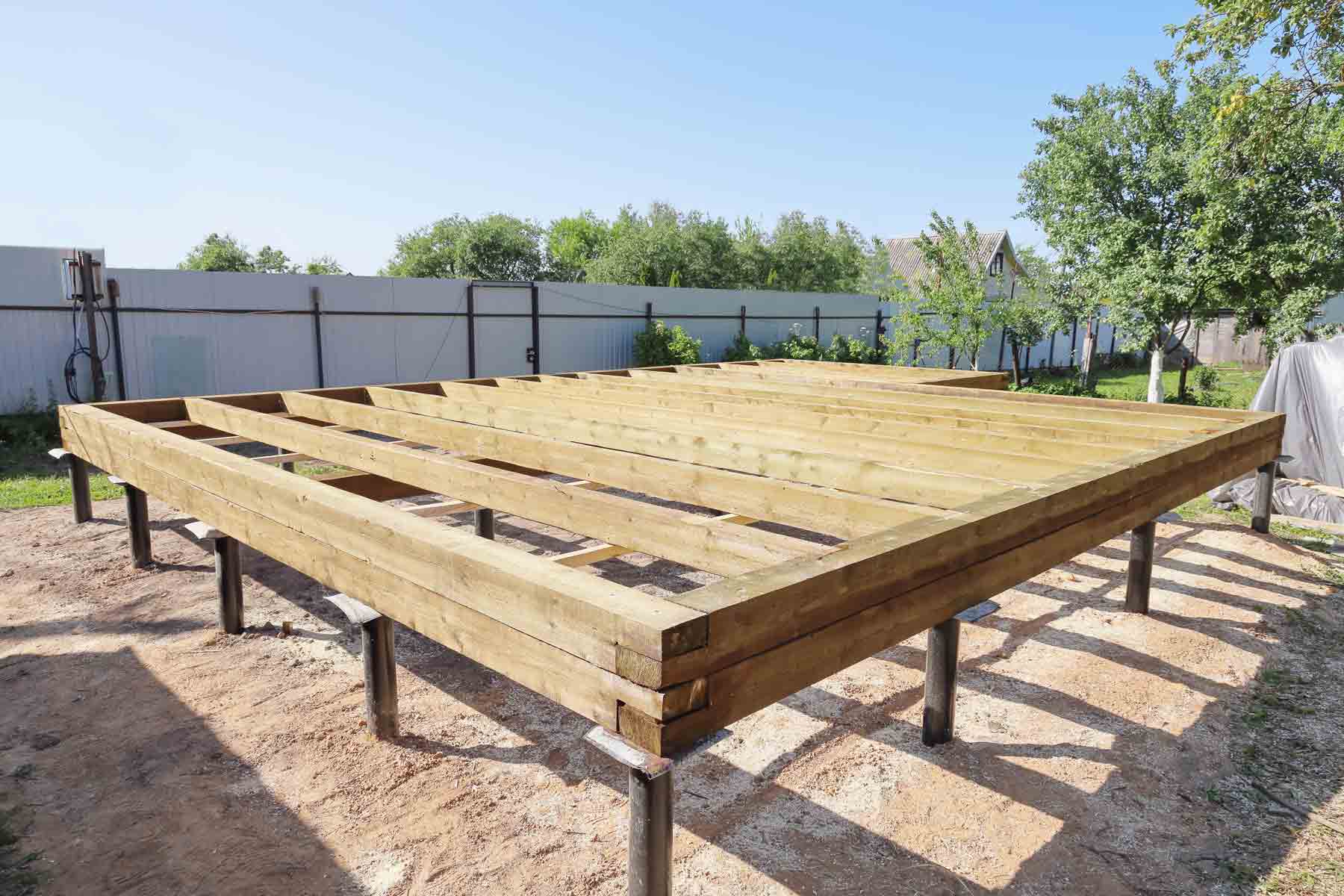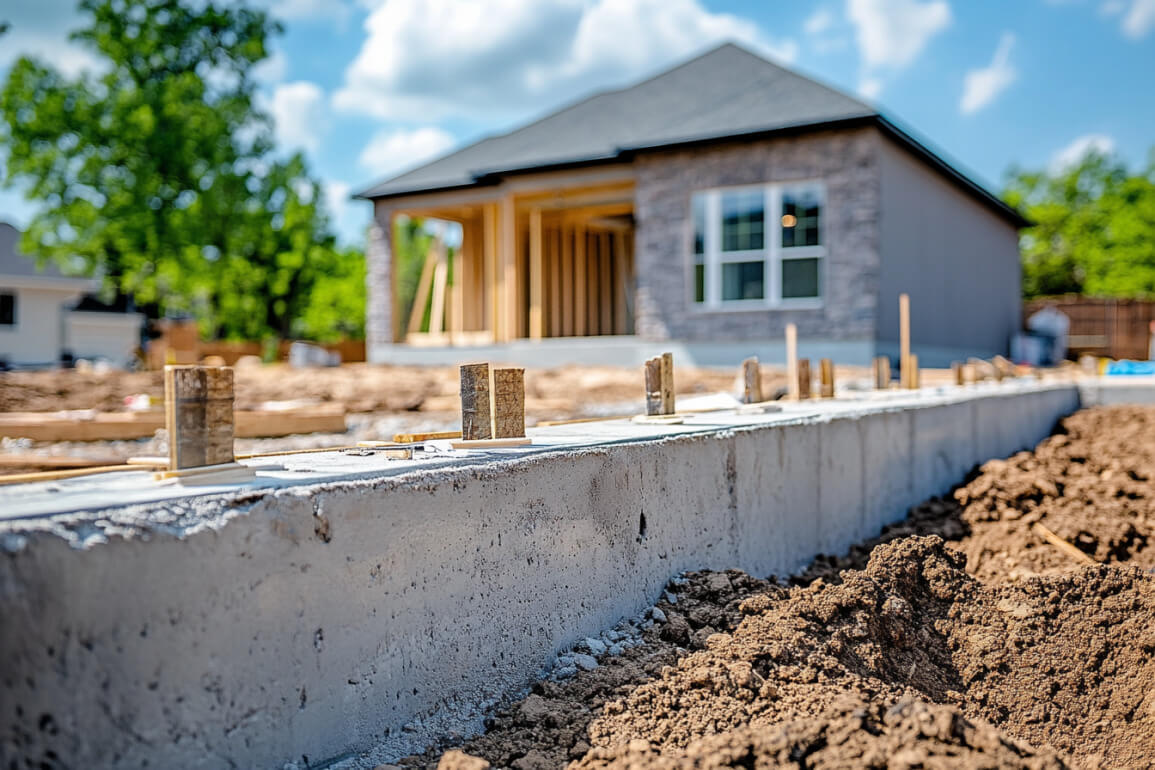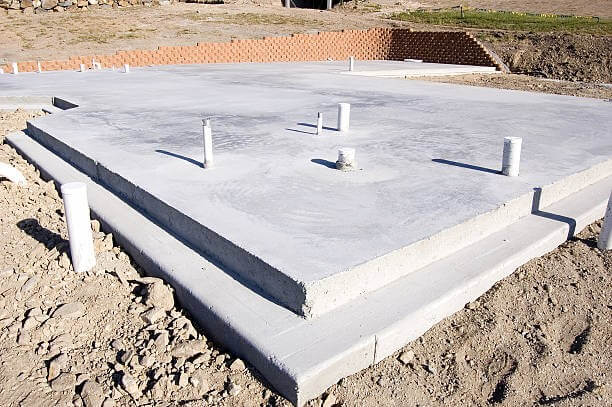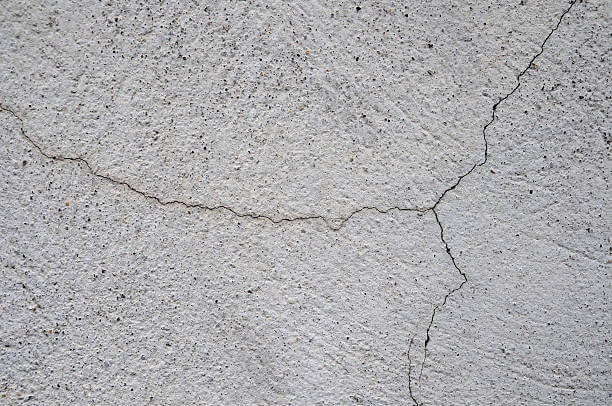How Much Does Foundation Repair Cost in 2026?
Foundation repair costs typically range from $2,200 to $8,400, with a national average of roughly $5,000 for common issues like fixing settlement or cracks. Major structural repairs involving extensive piering, lifting, or wall stabilization can cost $15,000 to $35,000+, while minor repairs such as sealing small cracks may cost as little as $300.
Your final cost depends on your foundation type, soil conditions, how easy it is to access the area, and how soon you catch the problem. Fixing issues early usually keeps costs lower. Waiting can let cracks and settling get worse, which often makes repairs much more expensive.
*All pricing reflects 2026 national averages based on industry research and fact-checking against recent contractor quotes and homeowner-reported projects across the U.S. Actual costs vary by location, foundation type, soil conditions, and project scope.
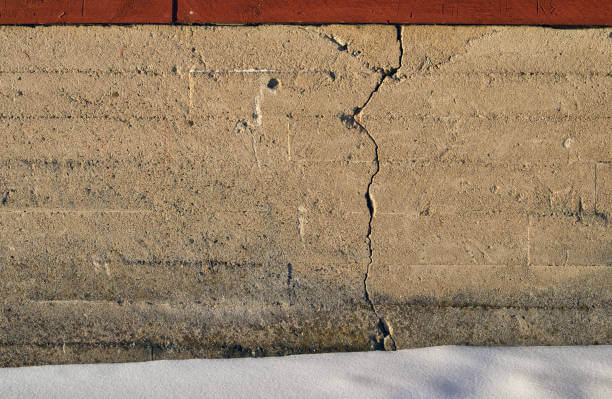
What Factors Affect Foundation Repair Costs?
Several factors affect your final cost, including the structure, environment, and details of your project. Here’s how contractors figure out pricing.
Foundation Type
Your foundation type is a big factor in repair costs because each kind needs different fixes. Basement foundations usually cost the most to repair, as they often require waterproofing and excavation. Pier and beam foundations are easier to access, so repairs are often cheaper. Here’s what you can expect to pay for each type.
| Foundation Type | Average Cost Range |
|---|---|
| Basement | $5,000 to $15,000 |
| Concrete Slab | $3,000 to $7,500 |
| Cinder Block / Brick | $3,500 to $10,000 |
| Pier and Beam | $2,500 to $8,000 |
| Stem Wall | $4,000 to $12,000 |
Type of Repair
Different problems need different repair methods. Each method has its own price range, depending on the soil, how easy it is to reach the area, and how much lifting or support is needed. Here’s a quick look at what each repair usually costs.
| Repair Type | Typical Cost Range |
|---|---|
| Mud-jacking / Slab-jacking | $550 to $1,450 |
| Polyurethane Foam Injection | $900 to $2,500 |
| Piering / Underpinning (Push Piers / Helical Piers) | $1,000 to $3,000 per pier |
| Basement Waterproofing System | $2,300 to $7,300 |
| Exterior Drainage Installation | $1,500 to $4,000 |
| Wall Reinforcement (Carbon Fiber / Steel Bracing) | $4,000 to $12,000 |
| Crawl Space Support Beam Repair | $1,500 to $6,000 |
| Foundation Lifting / Full-Leveling | $20,000 to $23,000+ |
| Soil Stabilization (Grout / Polymer Injection) | $1,000 to $5,000+ |
Cost tip: Pricing by the unit, such as cost per pier, can add up fast. If your estimate includes piers, ask how many are needed and why. Also, check if the quote covers excavation, brackets, and final leveling.
Type of Problem
If you’re not sure which repair your foundation needs but know the problem, here are average repair costs for each type of issue:
| Foundation Problem | Typical Cost Range | Common Repair Methods |
|---|---|---|
| Hairline Surface Cracks | $250 to $800 | Epoxy injection, polyurethane sealant |
| Foundation Leaks / Moisture | $2,000 to $6,000 | Interior drain tile, vapor barriers, sump pump installation |
| Settling / Sinking Foundation | $3,000 to $10,000 | Piering/underpinning, mud-jacking, soil stabilization |
| Bowing or Bulging Basement Walls | $4,000 to $12,000 | Carbon fiber straps, wall anchors, steel I-beams |
| Drainage or Grading Problems | $1,500 to $4,000 | Regrading soil, French drains, downspout extensions |
| Soil Movement / Expansive Clay Shifts | $1,000 to $5,000+ | Soil stabilization, underpinning |
| Tree-Root Intrusion | $500 to $2,000 | Root removal, root barriers, crack patching |
| Crawl Space Sagging | $1,500 to $6,000 | Support jacks, beam replacement, moisture control |
| Major Structural Failure | $10,000 to $25,000+ | Extensive piering, full lifting/leveling, reinforcement |
Next step: If you’re unsure about the problem, schedule an inspection with a licensed foundation contractor. If you notice fast-growing cracks, bowing walls, or major settling, consider getting a structural engineer’s report first.
Severity of Damage
Obviously, the severity of your foundation’s damage makes a huge difference in your overall cost.
- Minor: Cosmetic cracks or small settling (less than $1,000)
- Moderate: Partial settling, moisture issues ($3,000 to $7,000)
- Severe: Structural shifts, major bowing ($15,000+)
Soil Conditions
Expansive clay swells when wet, while sandy or loose soils can wash away or let your home sink. Houses in these areas may need extra stabilization, which can cost $1,000 to $5,000 or more.
Drainage and Moisture Control
Poor drainage is a leading cause of foundation failure. Fixes like regrading or installing French drains typically cost $1,500 to $4,000. Severe moisture problems may require basement waterproofing or sump pump installation.
Location
Foundation repair costs can be very different across the U.S. because of soil type, climate, building codes, and local labor rates. Areas with clay soil, earthquake risk, or older homes usually have higher repair costs.
Typical regional ranges:
- Southern states: $2,100 to $7,200
- Midwest and Plains: $2,500 to $8,500
- Northeast: $3,000 to $10,200
- West Coast: $3,000 to $10,200+
Local tip: Two homes with similar cracks might need very different repairs, depending on soil movement and drainage. Local contractors often suggest stabilizing the soil or improving drainage for a long-term solution.
Jump to see average foundation repair costs by state.
Home Size and Construction Materials
Bigger homes and those built with a lot of masonry need more materials and stronger support. Costs usually range from $2 to $9 per square foot.
Permits, Codes, and Local Regulations
Permits and required inspections usually add $75 to $500. Seismic zones, flood zones, and strict municipal codes can increase costs further.
Soil or Structural Engineer Reports
In some cases, you may need to pay for a soil report so foundation contractors can better understand your foundation issues and know the best way to proceed with the repairs.
- Soil (geotechnical) report: $500 to $3,000
- Structural engineer report: $500 to $1,000
These reports are often needed for major settling, bowing walls, or insurance claims. If you get one, ask if it suggests watching the cracks over time or fixing the problem right away.
DIY vs. Professional Labor
You can fix small cosmetic cracks yourself, but only a licensed professional should handle structural repairs. This protects your home and keeps your warranty valid.
Accessibility
Sloped lots, tight crawl spaces, or concrete-heavy properties increase labor costs. Labor often accounts for 50%+ of the total project cost.
When to Repair vs. Replace
If foundation repair costs exceed 40% to 50% of your home’s structural value, or if multiple repair phases are recommended over time, it may be more cost-effective to consider major structural replacement or full stabilization upfront.
For example:
- $12,000+ in repeated piering and wall reinforcement
- $15,000+ for severe structural shifting
- Ongoing water intrusion despite drainage fixes
In these cases, comparing full-scope solutions side-by-side can prevent repeat repairs and escalating costs.
What Are the Signs You Need Foundation Repair?
Catching problems early can keep a $250 crack repair from turning into a $10,000 structural job. Watch for these common warning signs.
Early Warning Signs
Some common early warning signs you need foundation repair include:
- Hairline cracks in walls or floors
- Doors or windows that stick seasonally
- Slightly sloping floors
- Cracks above window or door corners
Exterior Warning Signs
Outside, you may see these warning signs:
- Stair-step cracks in brick or block
- Gaps between soil and your foundation
- Pooling water near exterior walls
Interior Warning Signs
Inside, you may notice signs like:
- Diagonal cracks around door or window frames
- Cabinets or trim pulling away from the walls
- Uneven or sunken floors
How Do I Know What Kind of Foundation Repair I Need?
If you’re not sure which repair method you need, start by looking at the problem you see.
- Stair-step cracks in brick or block often point to settlement, which is commonly addressed with piers or underpinning
- Bowing or bulging basement walls are often from pressure and movement and are repaired with wall anchors or bracing
- Water in the basement or crawl space signals moisture intrusion, so drainage and waterproofing are the best repair options
- Uneven floors or doors that won’t close usually means supports are shifting. This is typically addressed with support jacks, beam repair, or piering
How Long Does Foundation Repair Take?
How long repairs take depends on how bad the damage is, how easy it is to reach, and the repair method. Most projects fit into these time frames.
- 1 to 3 days: Crack sealing, minor pier installation, interior patching
- 3 to 5 days: Wall reinforcement, waterproofing systems, multi-pier adjustments
- 5 to 7+ days: Full leveling, extensive piering, excavation-heavy work
Most repairs let you stay in your home, but big projects might cause some disruption. If your quote includes a lot of digging or inside drainage work, ask about noise, dust, and cleanup.
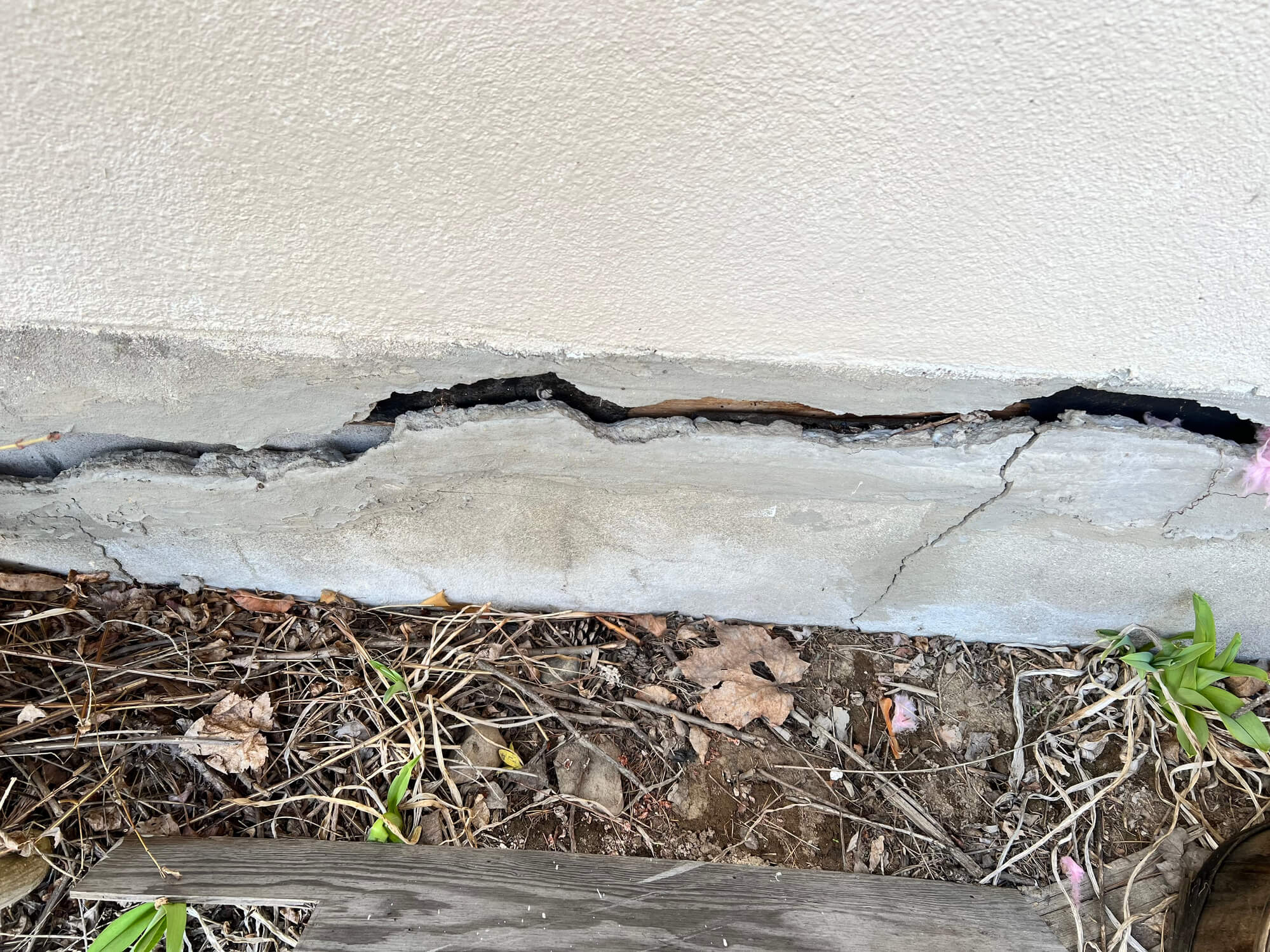
Foundation Repair Cost by State (2026 Data)
Search or scroll to view foundation repair pricing for all 50 states.
| State | Low End | High End |
|---|---|---|
| Alabama | $2,125 | $7,225 |
| Alaska | $2,500 | $8,500 |
| Arizona | $2,500 | $8,500 |
| Arkansas | $2,125 | $7,225 |
| California | $3,000 | $10,200 |
| Colorado | $2,500 | $8,500 |
| Connecticut | $3,000 | $10,200 |
| Delaware | $2,500 | $8,500 |
| Florida | $2,500 | $8,500 |
| Georgia | $2,500 | $8,500 |
| Hawaii | $3,000 | $10,200 |
| Idaho | $2,500 | $8,500 |
| Illinois | $2,500 | $8,500 |
| Indiana | $2,500 | $8,500 |
| Iowa | $2,500 | $8,500 |
| Kansas | $2,500 | $8,500 |
| Kentucky | $2,125 | $7,225 |
| Louisiana | $2,500 | $8,500 |
| Maine | $2,500 | $8,500 |
| Maryland | $2,500 | $8,500 |
| Massachusetts | $3,000 | $10,200 |
| Michigan | $2,500 | $8,500 |
| Minnesota | $2,500 | $8,500 |
| Mississippi | $2,125 | $7,225 |
| Missouri | $2,500 | $8,500 |
| Montana | $2,500 | $8,500 |
| Nebraska | $2,500 | $8,500 |
| Nevada | $2,500 | $8,500 |
| New Hampshire | $2,500 | $8,500 |
| New Jersey | $2,500 | $8,500 |
| New Mexico | $2,500 | $8,500 |
| New York | $3,000 | $10,200 |
| North Carolina | $2,500 | $8,500 |
| North Dakota | $2,500 | $8,500 |
| Ohio | $2,500 | $8,500 |
| Oklahoma | $2,125 | $7,225 |
| Oregon | $2,500 | $8,500 |
| Pennsylvania | $2,500 | $8,500 |
| Rhode Island | $2,500 | $8,500 |
| South Carolina | $2,500 | $8,500 |
| South Dakota | $2,500 | $8,500 |
| Tennessee | $2,500 | $8,500 |
| Texas | $2,500 | $8,500 |
| Utah | $2,500 | $8,500 |
| Vermont | $2,500 | $8,500 |
| Virginia | $2,500 | $8,500 |
| Washington | $3,000 | $10,200 |
| West Virginia | $2,125 | $7,225 |
| Wisconsin | $2,500 | $8,500 |
| Wyoming | $2,500 | $8,500 |
Can I Do Foundation Repair Myself?
In most cases, no. DIY repairs are only appropriate for small, non-structural cracks less than 1/8 inch wide. Anything involving settlement, sinking, moisture intrusion, or bowing walls requires professional intervention.
- Safe DIY projects: Hairline crack sealing, improving drainage
- Not safe for DIY: Pier installation, lifting, structural reinforcement, waterproofing systems
Foundation work is specialized and often needs heavy equipment. If repairs aren’t done right, the problem can get worse or stay hidden until it becomes much more expensive to fix.
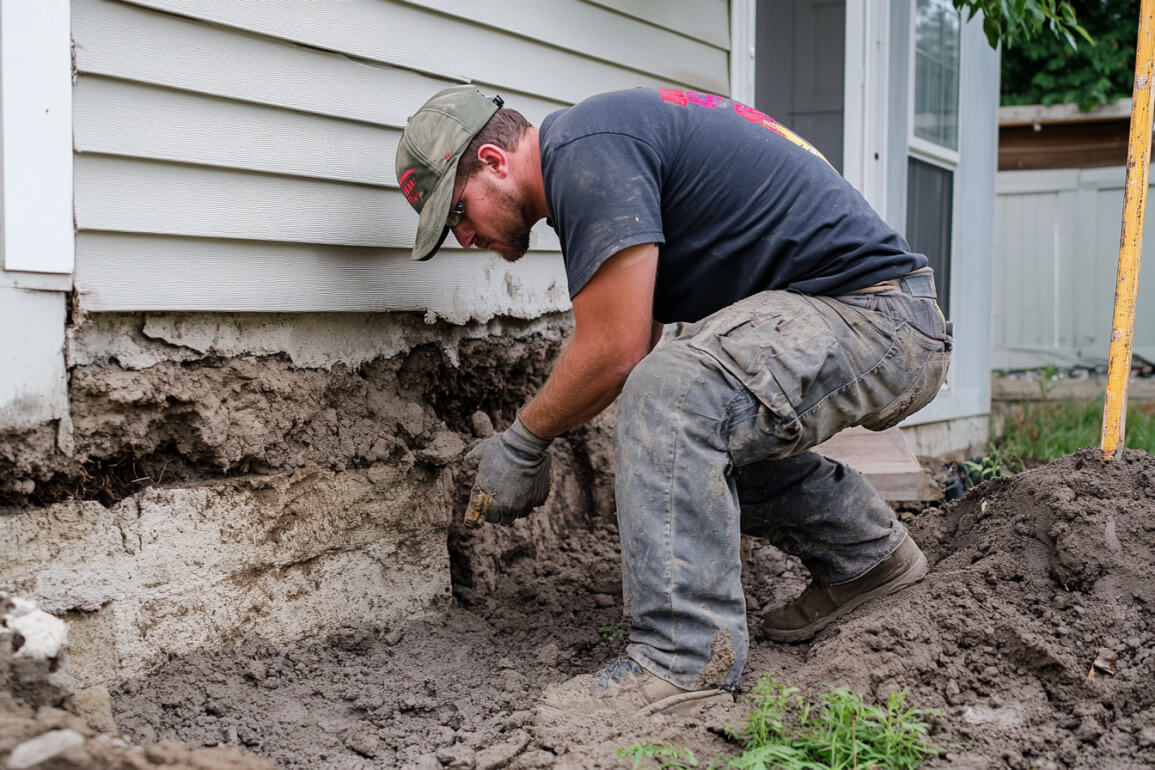
How to Save Money on Foundation Repair
Planning ahead and acting early can save you a lot of money. Here are some ways homeowners keep their repair costs down.
- Fix problems early. A $300 crack can turn into a $10,000 repair if you wait. Schedule an inspection as soon as you notice any movement.
- Get several quotes. Prices can vary a lot between contractors, so compare at least three detailed estimates.
- Ask for a detailed quote. It should explain the repair method, materials, number of piers (if needed), timeline, and cleanup.
- Bundle related services. Doing waterproofing, drainage, or landscaping work together can lower labor and equipment costs.
- Check financing options. Many foundation companies offer payment plans or same-as-cash financing, so compare the terms carefully.
- Keep drainage in good shape. Extend downspouts, clean your gutters, and make sure the soil slopes away from your house to lower future risks.
- Hire licensed and insured professionals. They make sure repairs meet code and come with a warranty.
Is Foundation Repair Worth the Cost?
Yes, foundation repair is almost always worth it. Fixing problems early stops structural damage, protects your home’s value, keeps your home safe, and helps you avoid much bigger repair bills later.
If you see cracks, uneven floors, doors that stick, or water getting in, contact a qualified local foundation repair contractor for an inspection and estimate.
Compare no-obligation quotes from pros near you.
Note: Foundation repair cost estimates are based on 2026 national and regional averages, industry research from sites like Angi, and fact-checking against recent contractor quotes and homeowner-reported projects. Actual prices vary by location, foundation type, soil conditions, and project scope.
Compare top-rated foundations pros in your area.
Read real homeowner reviews, explore qualifications, and view promotions. Modernize makes it easy to browse professionals and find one that will be perfect for your project.
